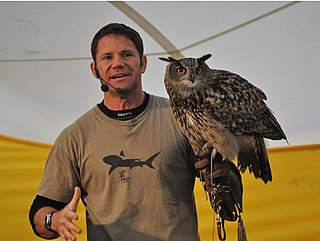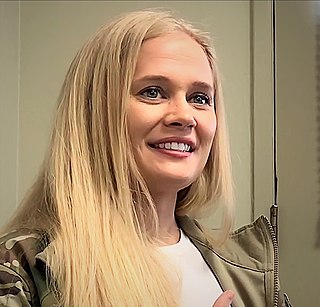A Quote by Steve Backshall
I'm actually getting to the stage where places I travelled to for the first time in the early 1990s are now unrecognisable. I go to coral reefs that I went to ten years ago when they were swarming with fish and sharks, and now they are barren deserts.
Related Quotes
Working in the Arctic is definitely colder, but not necessarily harder. There were different challenges. And in many ways, Chasing Coral was even more of a struggle for me personally. And more of a struggle to capture. Glaciers right now are changing very consistently. The interesting thing that we realized with Chasing Coral was that the corals reefs. They can go from living to dead in two months. And if you're not there at the right time to capture that before and after, you just show up and it's a dead reef. So it was a challenge to be at the right place at the right time.
To aspiring writers, I would tell them that we live in a wonderful time where you're able to make your work visible, easily. If you think about it, even ten years ago or twenty years ago, there was a middle man, there was a publisher, there were studios, there was this world of rejection letters. Now, we're in a place where we have the technology and the ability to go shoot our own movies or to put stuff on YouTube or a blog, if you're a writer, or self-publish.
For many years I thought my job was to go to places where it would be difficult for most of the readers to ever get to. Now, in the more than 20 years I've been doing this, the concept of adventure-travel trips or expeditions by groups has sprung up. The places I went 20 years ago now have adventure-travel trips.
Ten percent of the big fish still remain. There are still some blue whales. There are still some krill in Antarctica. There are a few oysters in Chesapeake Bay. Half the coral reefs are still in pretty good shape, a jeweled belt around the middle of the planet. There's still time, but not a lot, to turn things around.
Are coral reefs growing from the depths of the oceans? ... [The] reply is a simple negative; and a single fact establishes its truth. The reef-forming coral zoophytes, as has been shown, cannot grow at greater depths than 100 or 120 feet; and therefore in seas deeper than this, the formation or growth of reefs over the bottom is impossible.




























